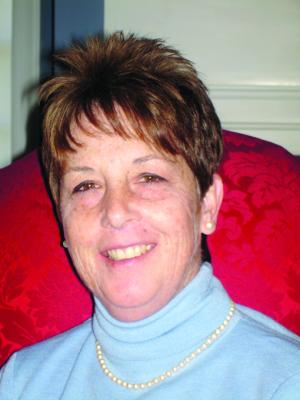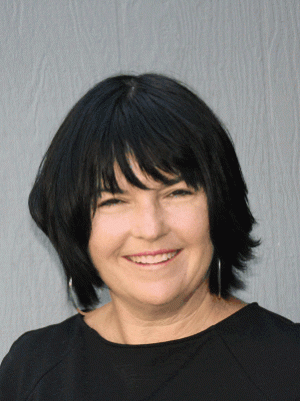Charter school admission policies have resulted in the resegregation of public schools, erasing decades of progress diversifying schools in Delaware, says the American Civil Liberties Union Foundation.
In a complaint filed Dec. 3 with the U.S. Department of Education's Office of Civil Rights, the ACLU Delaware says the state of Delaware and the Red Clay Consolidated School District have allowed a segregated system to persist through charter school admission policies.
“When high performing charter schools (or vo-tech and magnet schools) admit a disproportionate number of higher-income white students with no disabilities, the local community public schools are left with the difficult and costly task of educating the students most challenged by poverty or special education needs,” said Kathleen MacRea, executive director of ACLU Delaware. “This system just about assures that schools in poor urban and poor rural areas will fail, and our children will suffer. The whole State of Delaware is worse off as a result.”
While the complaint focuses solely on charter schools, MacRea notes that vocational and magnet schools have also contributed to a segregated public school system. The ACLU is keeping an eye on the vo-tech system, but a new complaint would be needed to include vocational schools, she said. Joining the suit are the national ACLU Racial Justice Program and Community Legal Aid Society.
The Charter School Act of 1995 allowed citizens to establish charter schools as an alternative to traditional public schools in an effort to encourage new initiatives in public education. Charter schools are public schools approved by the State Board of Education or an individual school district. Money for charter schools comes from the state's per-student allocation, determined by school district for each student. Charter school officials have more spending flexibility and fewer mandates than traditional schools, although charters receive no state money for capital improvements.
Charter School of Wilmington, approved by the Red Clay Consolidated School District, was the first charter school to open in Delaware, backed by the financial largesse of Wilmington's business community. Since then, it has become one of the strongest academic programs in the state, consistently outscoring traditional public schools on state tests.
Charter is also predominantly white and has an exclusive entrance process, MacRea said. The trend is echoed by other charter schools, including Sussex Academy in Georgetown, she said.
MacRea said of course schools will succeed if they require high test scores, parent essays and completion of advanced gifted and talented programs at the elementary and middle school levels and enroll children whose families can pay for uniforms.
A review of school profiles on the Department of Education website shows only four charter schools have student populations reflecting the overall population. All other charter schools are either predominantly white or predominantly black and Hispanic. Predominantly white charter schools are routinely high-performing academically while minority charter schools are often considered failing, according to the complaint.
Sussex Academy falls under the high-performing category. It also is becoming more white, the complaint states.
“The difference in diversity between Sussex Academy and the Indian River schools is stark,” the complaint reads.
Using comparative demographics from the 2013-14 school year, Sussex Academy's white population was 81 percent, 2.9 percent African American and 7.3 percent Hispanic compared to Indian River School District's 53 percent white, 14 percent African American and 27 percent Hispanic. Racial disparities are equally severe for Charter School of Wilmington and Newark Charter compared to the school districts in which they lie.
“Despite years of meager enrollment of African-American, Hispanic and low-income students, the school has offered nothing beyond assurances that it will conduct outreach to potential minority or low-income students at Sussex Academy,” the complaint states.
The complaint goes on to say the onus also lies with the state when the Delaware state board of education approved Sussex Academy's expansion to a high school without requiring the school to change its marketing plan.
Application, financial hardships
The complaint states Sussex Academy's daunting application process causes racial imbalance at the school. The school's application asks prospective students to write an essay on how Sussex Academy's teaching methods, philosophy or educational focus would be the best fit for the student. Parents are asked to write a short explanation of why Sussex Academy is a good choice for their child. If a preference committee selects a student's essay, the students would then participate in an interview.
“As a practical matter, particularly given the age of the applicants, children of more educated parents will be better able to take advantage of that preference,” the complaint states.
Patricia Oliphant, director of curriculum and instruction at Sussex Academy, said parents and students are not required to write an essay or explanation, but parents must sign an application to show they understand the difference between charter and traditional schools.
“We're amenable to helping any parent who has a question,” she said.
High numbers of applications for admissions to Sussex Academy's sixth-grade class have resulted in a lottery over the past several years. But Oliphant said no lottery has been needed for the high school grades. She said any student who fills out an application for grades nine, 10 and 11 would be accepted.
“Anyone who wants to apply can get in,” she said of the high school offerings.
Oliphant said an outreach committee has worked for four years to diversify the school. Since the school was opened in 2000, she said, the number of minority students has doubled. Getting minority students to apply has been challenging, she said.
“We are making strides," she said, adding not many African-Americans apply.
According to the complaint, Sussex Academy's financial requirements may create a barrier for low-income students.
The student handbook lists activity fees of $200 for middle school students and $225 for high school. The fee may be waived based on income by calling the office, the handbook states.
Oliphant said students who participate in the free lunch program do not pay the fees. Those who receive reduced price lunch are asked to pay half the activity fee, she said. Vouchers to purchase a school uniform are also given to students who need financial help, she said.
“On the surface it may look like we're charging impoverished kids, but we aren't,” she said.
Oliphant said school officials understand circumstances arise, and the school makes accommodations for those in need.
“If a parent were to call us and say, 'I can't do it right now,' the school would take care of it,” she said.
Downstate concern
MacRae said the ACLU has received complaints about charter school admission policies for several years. A letter written by Newark resident Eve Buckley is included in the complaint. She writes that mandatory fees and admission policies have made it difficult for low-income families to attend Newark Charter and the Charter School of Wilmington.
MacRae said she has heard from some Sussex County residents who have similar concerns about Sussex Academy.
Last spring, Seaford's school board wrote a resolution asking state officials to require minority student populations at charter and vocational schools reflect the school districts in which those schools are located. Cape Henlopen and Christina school boards endorsed the measure.
Frank Parks, the Seaford school board member who penned the resolution, said he contacted the ACLU two years ago about the growing segregation problem in Sussex County. The problem goes beyond admission policies at charter and vocational schools and involves Delaware's public school choice law, he said. Over the years, Parks said, he has watched wealthier students in Laurel and Seaford school districts leave for Delmar School District in addition to Sussex Tech and Sussex Academy.
“If we're segregating students, students are missing out on both sides,” he said.
Parks said he is approaching Sussex County legislators about changing the law to prevent segregation of schools based on income levels. He said fixing the issue legislatively makes more sense and would be quicker than filing a lawsuit that may take years to resolve. No legislator has promised to sponsor a bill, but Parks said he remains optimistic that someone will.
“Segregation is growing, and statewide it's an issue that needs to be addressed,” he said.
Speaker of the House Rep. Pete Schwartzkopf, D-Rehoboth Beach, said a task force has been meeting throughout the year to address admission policies not only for charter schools but for vocational and choice schools, too.
“The task force is finding out what criteria are used that are a barrier to underprivileged students,” he said.
Schwartzkopf said he has heard complaints over the years on admission policies at the vocational schools but not so much for charter schools. The charter school issue is more of an upstate issue, he said.
“It's not affecting us to the extent as upstate,” he said.
Schwartzkopf said the task force has two meetings left before it draws up a report on admission policies. There has been no talk of any legislative action to address admission policies, he said.
“It would be premature to think about it until the task force is finished,” Schwartzkopf said.
Possible remedies
The complaint recommends several ways to resolve racial imbalance at charter and traditional schools. These include:
• Placing a moratorium on new charters until an effective desegregation plan for African-American, Hispanic and students with disabilities has been implemented.
• Require that charter school admissions are available to all students in the school district in which they are located.
• Ensure parents are not required or pressured to purchase uniforms or raise money for the school.
Without these remedies, MacRae said, successful charter schools are likely to continue using exclusive admission practices. There is no indication that Delaware's high-performing charter schools are even attempting to serve students with disabilities or African-American and Hispanic students, she said.
“A system of public school education that is structured so that already advantaged predominantly white/middle and upper class families are able to secure a higher quality education for their children than children from families of color is inherently unfair and against the law,” MacRea said. “Every student in Delaware, no matter their race, ethnicity, income level or special learning needs, deserves equal access to high-quality educational opportunities.”
Task Force to submit report in 2015
The Enrollment Preference Task Force was created through House Bill 90 that was passed by the legislature and signed into law in June 2013.
The task force has met throughout 2014 at various locations across the state to examine enrollment preferences and policies at vocational technical, charter, magnet and choice schools.
Members of the task force include superintendents from all three vo-tech school districts, a superintendent representative from a traditional school district in each county, parent representatives including those with ties to vocational, charter and magnet schools, state legislators and state education officials. Members are Rep. Kimberly Williams, D-Stanton; Sen. Nicole Poore, D-Delaware City; Rep. Earl Jaques, D-Glasgow; Sen. David Sokola, D-North Star; Delaware Secretary of Education Mark Murphy; Randall Hughes, deputy principal assistant for the Delaware Department of Safety and Homeland Security; Frederika Jenner, president of Delaware State Education Association; Susan Francis, executive director Delaware School Boards Association; Yvonne Johnson, member of the Delaware Parent Teacher Association; Chuck Taylor, president of governing board of the Delaware Charter School Network; Gary Stockbridge, president Delmarva Power; Terri Hancharick, member Delaware Governor's Advisory Council for Exceptional Citizens; Lindsay O'Mara, education advisor to Gov. Jack Markell; Merv Daugherty, superintendent Red Clay Consolidated School District; Kevin Fitzgerald, superintendent Caesar Rodney School District; David Ring, superindent Delmar School District; Matthew Donovan, Delaware Association of School Administrators; Victoria Gehrt, superintendent New Castle County vo-tech; Deborah Zych, superintendent Polytech; A.J. Lathbury, superintendent Sussex Tech; Mark Pruitt, magnet school representative; Julie Rumschlag, magnet school representative; Henry Clampitt, charter school representative; Dan Mell, charter school representative; Terri Hodges, president Delaware PTA; Elizabeth Lockman, parent representative; and Katie Hegedus, parent representative.
The task force has examined admission policies and applications for charter, vo-tech and magnet schools throughout the state, said co-chair Williams.
During the Dec. 8 meeting, she said task force members voted on whether vo-tech, charter and magnet schools should use assessments as part of their admission process. The majority of task force members voted no in all cases, except for admission to a magnet high school in which the vote was split.
Using the Cab Calloway School for Performing Arts as the only high school example, Williams said an audition would be appropriate because a student's talent has been defined by the time he or she reaches high school. But no other tests or assessments should be required, she said.
The group will continue to meet in 2015. The next meeting date has not been announced but Williams said the task force will discuss the use of grades, essays, report cards and teacher evaluations and recommendations used for admission to vo-tech, charter and magnet schools.
Melissa Steele is a staff writer covering the state Legislature, government and police. Her newspaper career spans more than 30 years and includes working for the Delaware State News, Burlington County Times, The News Journal, Dover Post and Milford Beacon before coming to the Cape Gazette in 2012. Her work has received numerous awards, most notably a Pulitzer Prize-adjudicated investigative piece, and a runner-up for the MDDC James S. Keat Freedom of Information Award.
























































